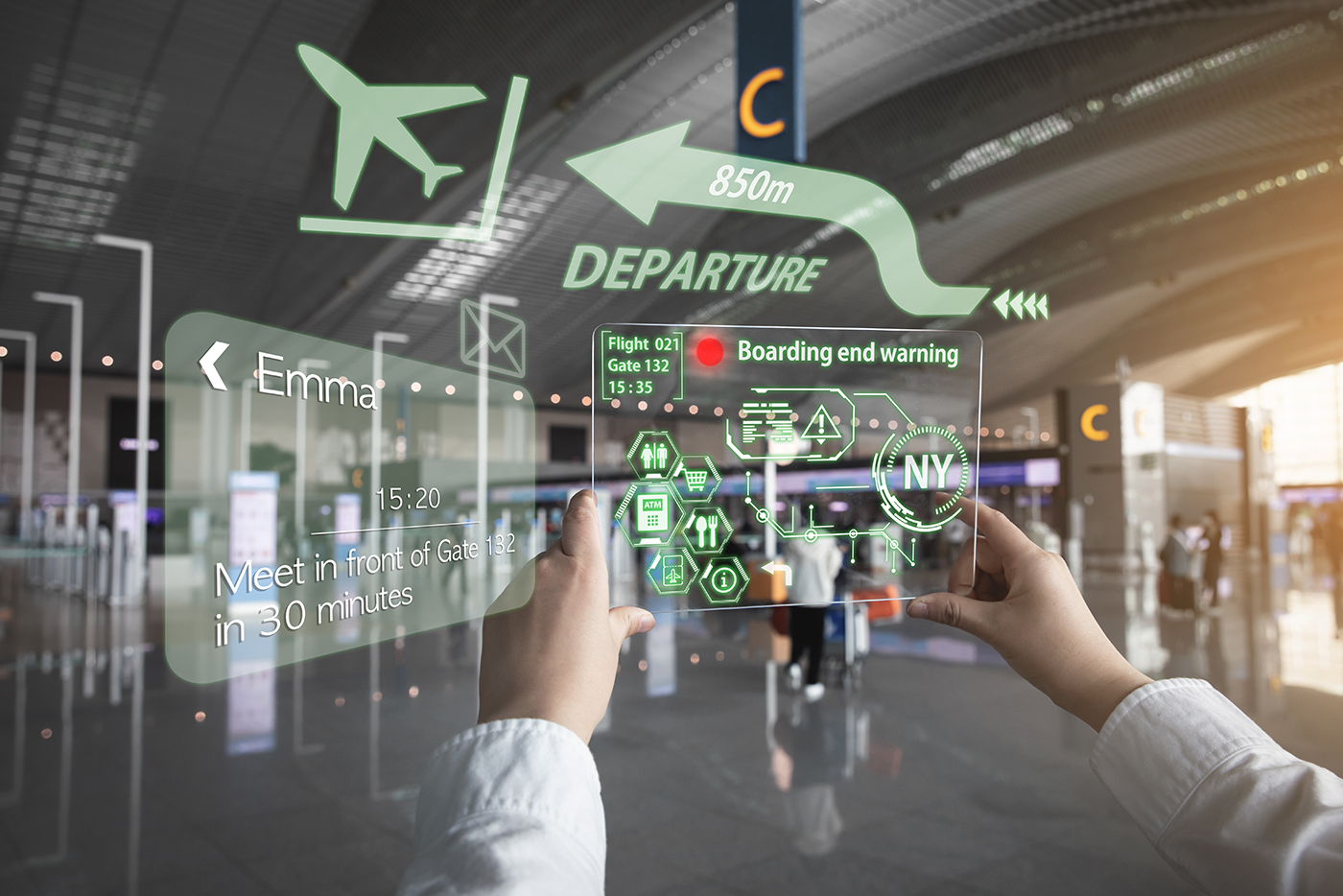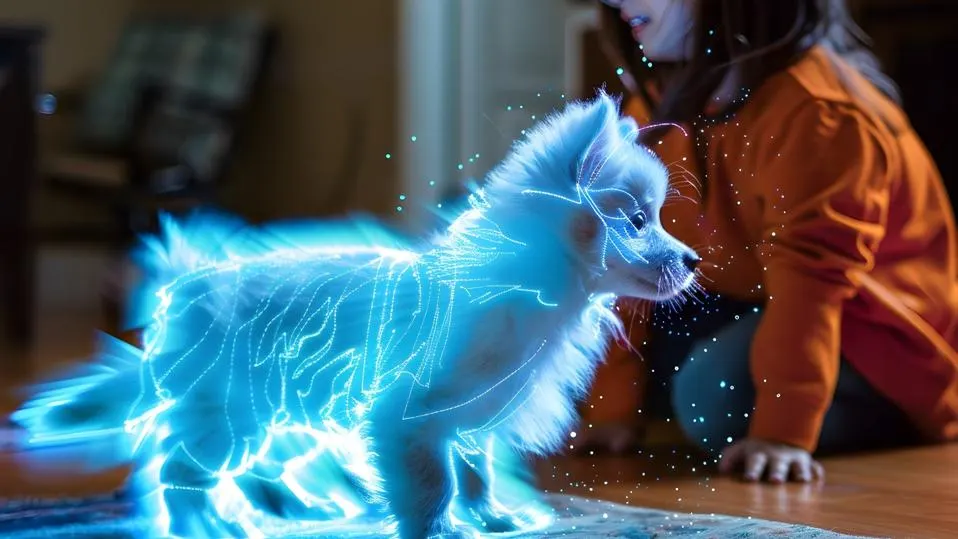Here’s How Travel Will Look In The Internet Of The Future
6 July 2023
The future internet will provide us the opportunity to travel in a whole new way, whether that’s through fully-immersive virtual travel experiences or by supplementing our real-world travel experiences with cutting-edge technologies.
With metaverse and decentralized internet tech, travel companies will be able to offer more personalized and immersive experiences to customers. As these technologies continue to advance, they are expected to have a significant and transformative effect on the travel industry.
Let’s explore three key ways the future internet will impact and enhance the way we travel and see the world.

Virtual Travel
Virtual reality (VR) allows us to explore new places without leaving our homes, offices, or classrooms. While this will never replace the magic of real-world travel, there's still enormous value in being able to explore the world without needing to jump on a plane or train or take a long road trip.
For example, Patagonia has created an Oculus Rift experience that allows users to visit the remote mountain Monte Fitzroy, including viewing a breathtaking glacial lake that lies at the foot of the mountain. You might never be able to visit Monte Fitzroy in real life, but this immersive experience gives you the next best thing.
Travelers can also use VR to "try before they buy" and see if they want to visit destinations before committing to buying tickets, hotels, and excursions. Hotels are already using VR as a marketing tool to entice visitors to their doors.
As the metaverse evolves and incorporates more digital replicas of real-life destinations, we’ll be able to travel to a wide range of places just by putting on our headsets. Because the future internet will be connected and persistent, we’ll also be able to travel seamlessly from one location to another, even taking our virtual luggage with us!
Improving Real-World Travel
Future Internet technologies will also continue to improve and enhance our real-world travel experiences. Destinations like Disney parks are already working on incorporating virtual-world simulators into their venues, using projected images.
We already have virtual reality theme parks, like VR Star Theme Park in China or Dubai’s VR Park, that offer a variety of games, rides, and experiences, and we can expect to see even more of these destinations in the future.
Traditional theme parks will also incorporate VR and AR into their regular rides and experiences. For example, at SeaWorld in Orlando, Florida, riders are given VR headsets to enhance the rollercoaster experience. In addition to the usual twists and turns of the roller coaster, the VR headset transports riders into a digital underwater world.
People will also get help from AR to make travel easier, more pleasant, and more fun. Imagine reaching a real-world destination and being able to see interactive information like directions, landmarks, and points of interest on your smart glasses or phone.
The Google Maps Live View AR feature overlays easy-to-follow AR arrows and directions onto the real-world street in front of you, guiding you on where to walk and where to turn to get to your destination.
Tunnel Vision NYC is another AR app that turns New York City’s subway maps into interactive visualizations. Chinese ride-sharing app DiDi has an augmented reality feature that guides passengers through buildings like train stations and airports to find their exact pick-up locations.
Travel and Web3 Technologies
Web3 technologies like blockchain will also make their way into the travel industry. There are already blockchain-based booking platforms available, and companies like TUI Group are working on integrating blockchain and smart contracts into their travel businesses. Companies are potentially looking to use blockchain-based booking to eliminate intermediary sites like Orbitz and Expedia.
In the future internet, we can also expect to see more travel-related non-fungible tokens (NFTs). Luxury hotel brand Marriott Bonvoy partnered with artists TXREK, JVY, and Erick Nicolay to create unique NFTs, which were awarded to three winners, along with 200,000 Marriott Bonvoy points each.
As web3 technologies continue to transform the travel industry, we could not only book all our travel on the blockchain, but even our passports might be NFTs on the decentralized web.
Related Articles
4 Smartphones Leading The AI Revolution
As enterprises increasingly rely on company-issued smartphones as primary computing devices, these mobile devices are becoming the frontline of workplace AI integration.[...]
The Rise Of AI-Enabled Virtual Pets: Why Millions Are Raising Digital Companions
Remember Tamagotchis? Those tiny digital pets that had millions of kids frantically pressing buttons to keep their virtual companions alive in the 1990s?[...]
The Dark Side Of AI: How Deepfakes And Disinformation Are Becoming A Billion-Dollar Business Risk
Every week, I talk to business leaders who believe they're prepared for AI disruption. But when I ask them about their defense strategy against AI-generated deepfakes and disinformation, I'm usually met with blank stares.[...]
Why You Should Be Polite To ChatGPT And Other AIs
In my latest conversation with ChatGPT, I caught myself saying "please" and "thank you." My wife, overhearing this, couldn't help but laugh at my politeness toward a machine.[...]
The 7 Revolutionary Cloud Computing Trends That Will Define Business Success In 2025
Picture this: A world where quantum computing is as accessible as checking your email, where AI automatically optimizes your entire cloud infrastructure, and where edge computing seamlessly melds with cloud services to deliver lightning-fast responses.[...]
AI And The Global Economy: A Double-Edged Sword That Could Trigger Market Meltdowns
The stock market's current AI euphoria, driven by companies like NVIDIA developing powerful processors for machine learning, might mask a more troubling reality.[...]
Sign up to Stay in Touch!
Bernard Marr is a world-renowned futurist, influencer and thought leader in the fields of business and technology, with a passion for using technology for the good of humanity.
He is a best-selling author of over 20 books, writes a regular column for Forbes and advises and coaches many of the world’s best-known organisations.
He has a combined following of 4 million people across his social media channels and newsletters and was ranked by LinkedIn as one of the top 5 business influencers in the world.
Bernard’s latest book is ‘Generative AI in Practice’.










Social Media